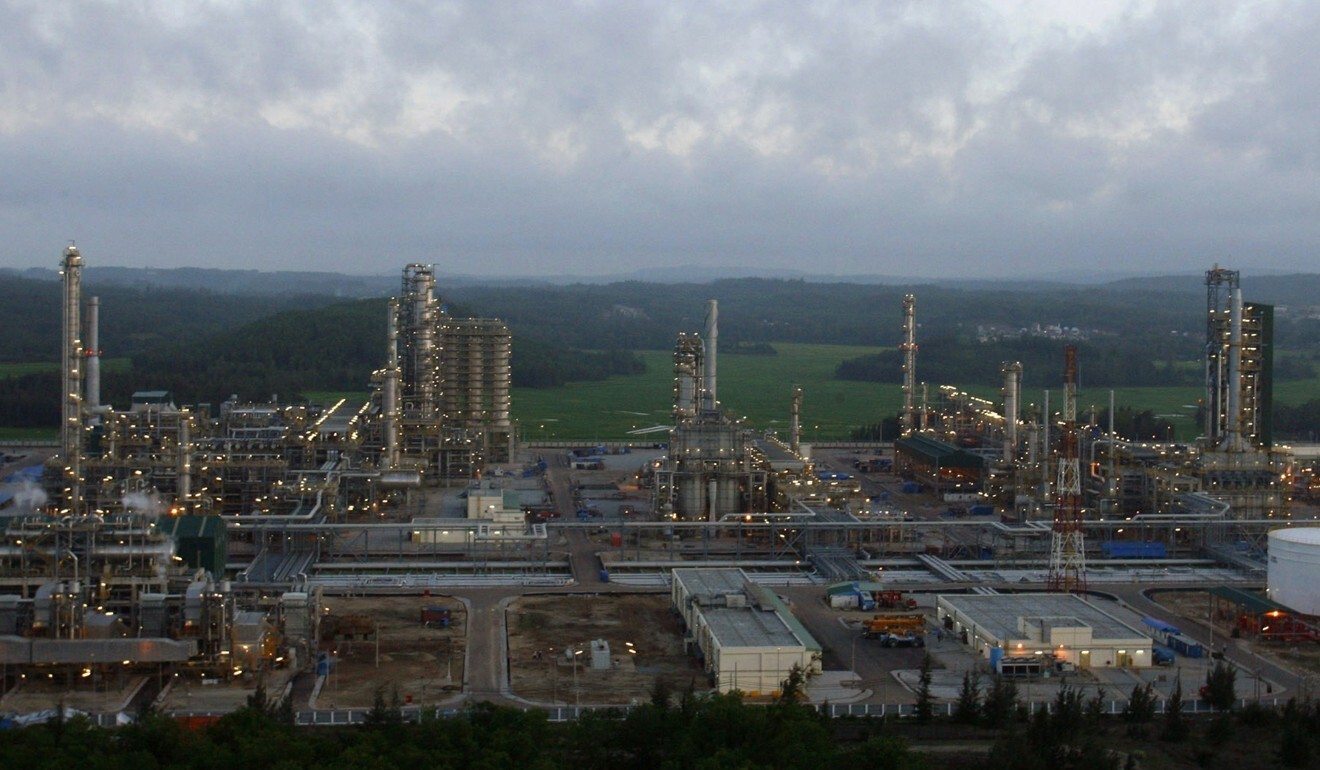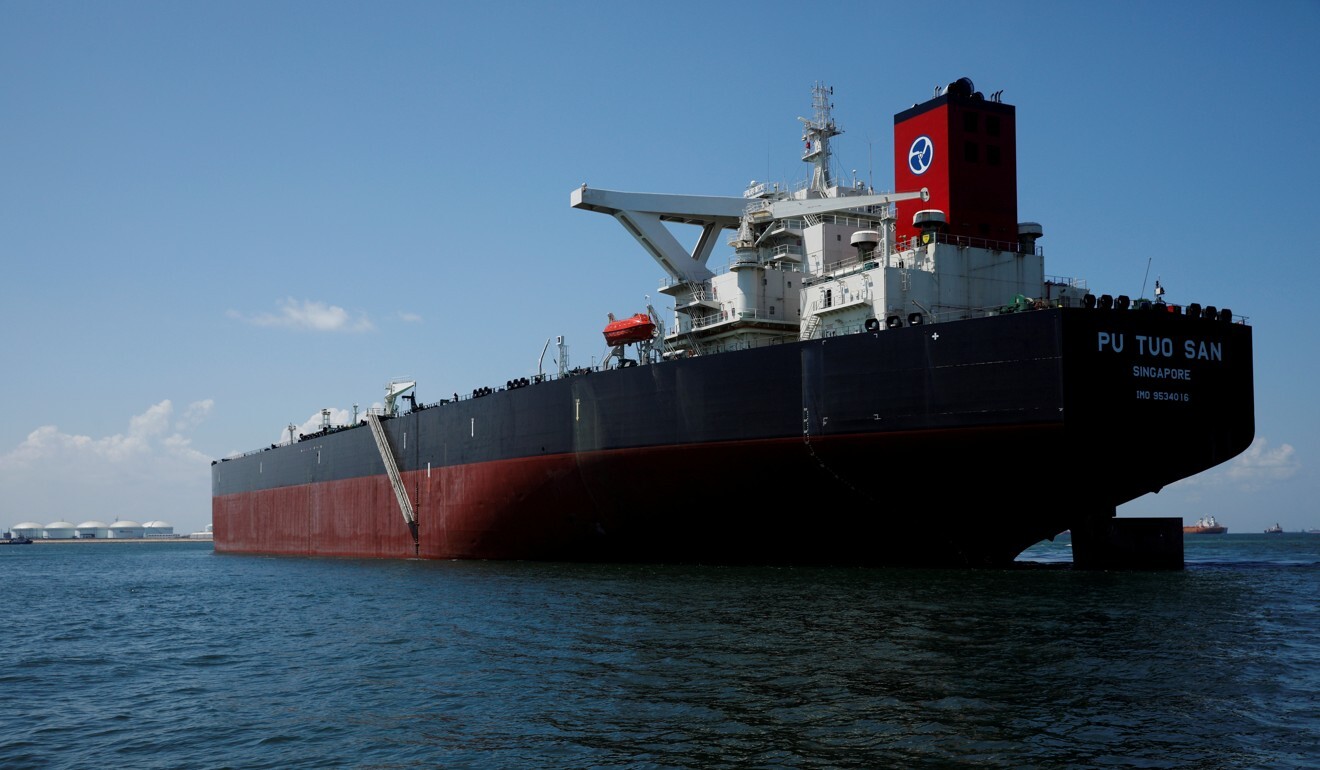
Coronavirus means cheap oil isn’t good news for energy-hungry Southeast Asia
- With demand at an all-time low, things look dire for Indonesia, Malaysia, Vietnam, Thailand and Brunei, whose state revenues rely on oil and gas projects
- Meanwhile, Singapore’s struggling offshore and marine sector will be further squeezed

Oil prices are at the cheapest they have ever been in modern history, but this does not bode well even for Southeast Asia’s energy-hungry economies.
In fact, compounded with the rising pressures of the coronavirus pandemic, the new lows seen in global oil prices are likely to hurt government coffers, spark a wave of bankruptcies, and unleash a fresh round of retrenchments across the region, industry observers say.
Oil-producing countries like Indonesia and Malaysia are likely to take a big hit, while Singapore’s offshore and marine sector, which barely scraped through the last market rout when oil prices crashed in 2014, will be squeezed further.
The oil and gas industry is no stranger to volatility. But with the Covid-19 outbreak in tow, things are different this time, says Tan Lian Yok, a Singapore-based partner at international law firm K&L Gates Straits Law.
“What’s different is that business is not as normal. You have all that oil either in the ground or in storage but it’s stuck, because no one is consuming it,” Tan said. “That’s going to be a big problem.”
DOUBLE WHAMMY
Backed by a growing population and rapid urbanisation, Southeast Asia is a region with a big appetite for energy, most of which is powered by fossil fuels.
But in a world awash with supply, and where demand has drastically evaporated because of coronavirus lockdowns, the region’s oil and gas businesses are sitting on the verge of implosion.
For countries such as Indonesia, Malaysia, Vietnam, Thailand and Brunei, much of their state revenues rely on oil and gas projects.

Global benchmark Brent now trades at about US$22 per barrel, compared with levels of US$50 before a raging price war broke out between Russia and Saudi Arabia in March. This week, for the first time in history, US oil prices were shocked into negative territory.
Both national and international oil companies have slashed capital expenditures. As a result, Indonesia, Southeast Asia’s largest oil producer, has cut its forecast for non-tax state revenue from the oil and gas industry by more than half to US$6.7 billion, after backtracking on an earlier statement to maintain production targets, not including missed earnings from oil-related taxes.
Malaysia is facing about 16.5 billion ringgit (US$3.8 billion) in potential losses from oil-related revenue for 2020, mainly from petroleum income tax.
Which bank would dare to open a letter of credit for a company in the oil business now?
“This time around, you’re having problems on both the supply and demand sides,” said TSMP Law Corporation lawyer Melvin Chan. “The oil producers don’t seem to be playing ball, while air travel is dead, shipping has gone down. It’s a double whammy.”
In 2015 and 2016, for instance, while Indonesia made use of fuel subsidies, or the removal of some of them, to bolster government spending, it is unlikely to be able to do the same today because consumption is hammered.
Still, the low oil prices have attracted some bargain hunters for now, at least.
A Bloomberg report said Indonesia’s state-owned Pertamina has hired tankers to store refined fuels at sea, while Australia’s federal government is set to spend US$94 million on a fuel reserve in the United States to add to its national stockpile.

DEEPER AND HARSHER
In an industry that is capital- and credit-intensive, it is the lack of cash flow that will drive many to their demise.
In Singapore, Southeast Asia’s main commodities trading hub, oil trading giant Hin Leong Trading has filed for a six-month moratorium on debts worth US$3.85 billion. Its financial woes, which include having hidden about US$800 million in losses over the years, had come to light as oil prices tanked.
Reuters reported on Thursday that Chinese state energy company Sinopec was said to be eyeing a stake in an oil storage terminal that is partly owned by Hin Leong.
Even before Hin Leong’s collapse, another commodity trader, Agritrade International, was placed under judicial management in February, while Hontop Energy (Singapore), the trading unit of a Shandong-based refiner, went into receivership.
Singapore’s central bank has told banks not to “de-risk indiscriminately” from the bunkering and oil trading sectors. But as oil industry consultant Ong Eng Tong put it: “Which bank would dare to open a letter of credit for a company in the oil business now?”
More will follow as the financial strains deepen. “We expect bad loans (from the sector) to increase over the next three to six months. Any oil companies that are looking to roll over debt will find it more difficult this time round,” said King & Spalding lawyers Andrew Brereton and Merrick White.
A source who asked not to be named added that a number of companies in Indonesia and Thailand were looking at legal help with their liabilities.
Offshore and marine contractors that support oil and gas projects will also be squeezed, with debt-laden firms such as Falcon Energy, Swiber Holdings and Ezion Holdings looking especially vulnerable.
“Cheap oil is good for the vessel operators. But nothing can mitigate low or no demand,” said Ang Ding Li, an analyst at market intelligence firm IHS Markit.
“The way I see it, this downturn will finish what 2014 didn’t do. It will rebalance the market, and only the competitive and financially strong will survive,” he said. “If not, it’s game over.”